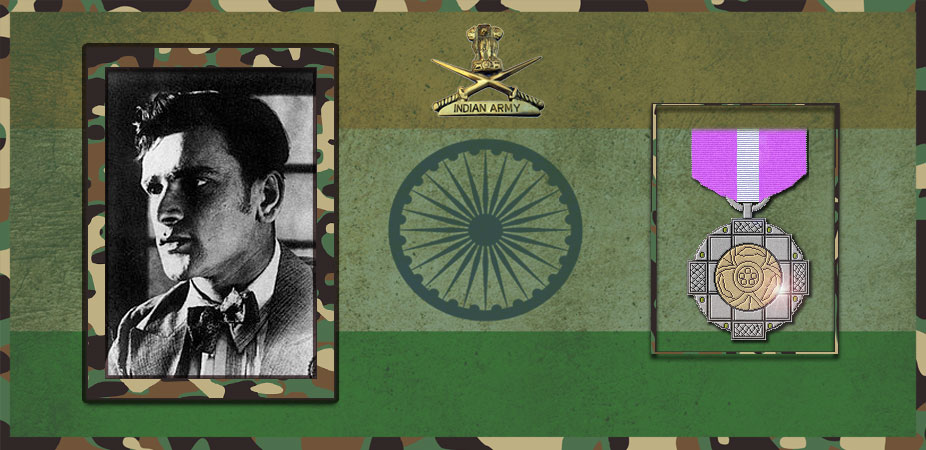Let's salute to our Indian Army together, We are proud to be Indian.
Let's salute to our Indian Army together, We are proud to be Indian.

Prithviraj Kapoor (3 November 1903– 29 May 1972) was a pioneer of Indian theatre and of the Hindi film industry, who started his career as an actor in the silent era of Hindi cinema, associated with IPTA as one of its founding members and who founded the Prithvi Theatres, a travelling theatre company based in Mumbai, in 1944.
Born in Samundri, Samundri Tehsil, Lyallpur District, Punjab, British India (present-day Samundri, Samundri Tehsil, Faisalabad District, Punjab, Pakistan), and lived in the village Lasara, Punjab (India) he was also the patriarch of the Kapoor family of Hindi films, four generations of which, beginning with him, have played active roles in the Hindi film industry. However, his father, Basheshwarnath Nath Kapoor, also played a short role in his movie Awaara. The Government of India honoured him with the Padma Bhushan in 1969 and the Dadasaheb Phalke Award in 1971 for his contributions towards Indian cinema.
Kapoor was born on 3 November 1903, in a Punjabi Hindu family, in Samundri, Punjab Province in British India,in what today is the Punjab province of Pakistan. His father, Basheshwarnath Kapoor, served as a police officer in the Indian Imperial Police in the city of Peshawar; while his grandfather, Keshavmal Kapoor, was a Tehsildar in Samundri, Punjab, British India. Surinder Kapoor, the famous Bollywood producer and father of actor Anil Kapoor was a first cousin of Prithviraj Kapoor
Kapoor began his acting career in the theatres of Lyallpur and Peshawar. In 1928, he moved to Bombay with a loan from an aunt. There he joined the Imperial Films Company. He acted as an extra in his first film, Do Dhari Talwar, though he went on to earn a lead role for his third film, titled Cinema Girl, in 1929.
After featuring in nine silent films, including Do Dhari Talwar, Cinema Girl, Sher-e-Arab and Prince Vijaykumar, Kapoor did a supporting role in India’s first film talkie, Alam Ara (1931). His performance in Vidyapati (1937) was much appreciated.His best-known performance is perhaps as Alexander the Great in Sohrab Modi’s Sikandar (1941). He also joined the Grant Anderson Theater Company, an English theatrical company that remained in Bombay for a year. Through all these years, Kapoor remained devoted to the theatre and performed on stage regularly. He developed a reputation as a very fine and versatile actor on both stage and screen.
His filmography of this period includes Mughal E Azam (1960), where he gave his most memorable performance as the Mughal emperor Akbar, Harishchandra Taramati (1963) in which he played the lead role, an unforgettable performance as Porus in Sikandar-e-Azam (1965), and the stentorian grandfather in Kal Aaj Aur Kal (1971), in which he appeared with his son Raj Kapoor and grandson Randhir Kapoor.
Kapoor starred in the legendary religious Punjabi film Nanak Nam Jahaz Hai (1969), a film so revered in Punjab that there were lines many kilometres long to purchase tickets.
He also starred in the Punjabi films Nanak Dukhiya Sub Sansar (1970) and Mele Mittran De (1972).
He also acted in the Kannada movie Sakshatkara (1971), directed by Kannada director Puttanna Kanagal. He acted as Rajkumar’s father in that movie.
In 1954, he was awarded the Sangeet Natak Akademi Fellowship, and in 1969, the Padma Bhushan by the Government of India. He remained Nominated Rajya Sabha Member for eight years.
He was posthumously awarded the Dadasaheb Phalke Award for the year 1971. He was the third recipient of that award, the highest accolade in Indian cinema.